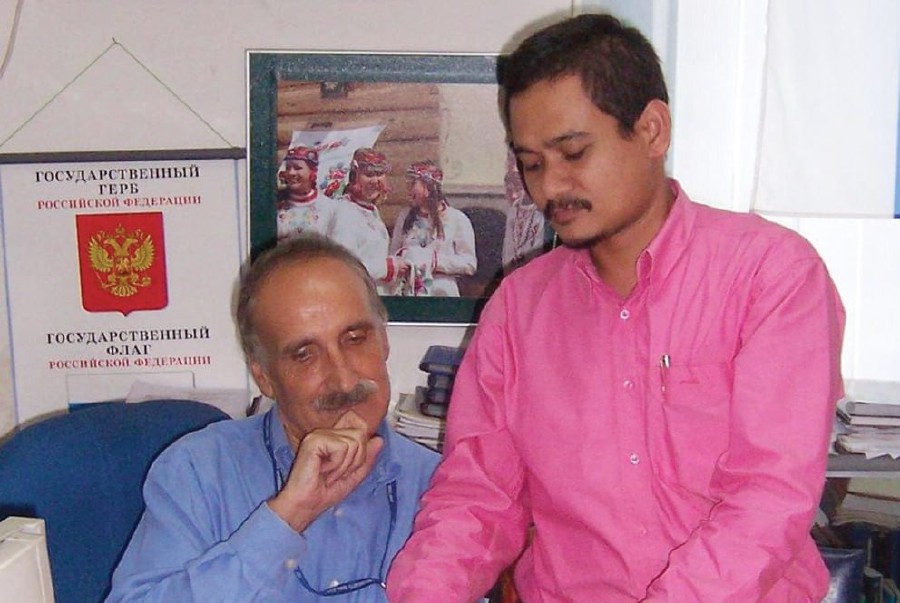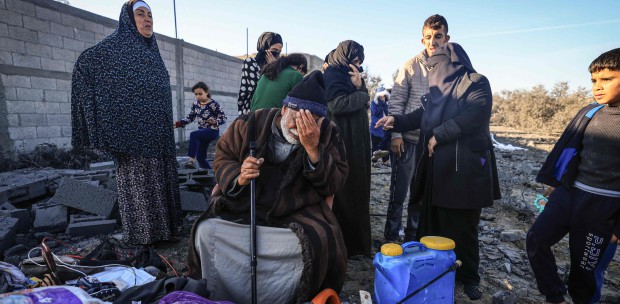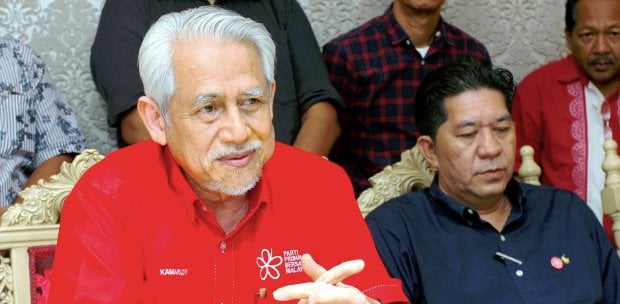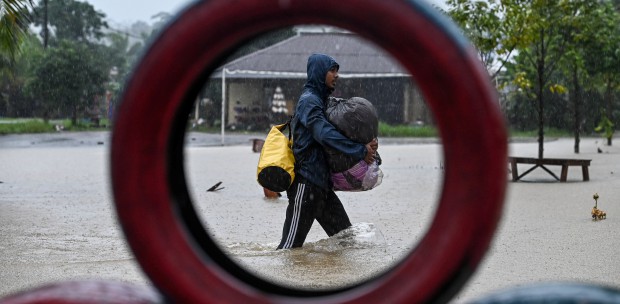Sometimes amazing things happen in life. In 1998, fate brought me to Malaysia to participate in a poetry competition in conjunction with Merdeka Day.
The competition was organised by the Gapena writer's association and took place in Penang. Gapena also held a meeting of its members from all Malaysian states there.
I unexpectedly found an old acquaintance, Yaakob Isa (1939-2019). Once upon a time, we studied together at the Universiti Malaya.
He worked as the director-general of an Islamic college in Kuantan, compiled the Classic Malay Language Dictionary, and wrote several books.
Yaakob invited me to Kuantan and I accepted his invitation.
Yaakob's house was in the village of Koperasi Guru where he lived with his wife. At night I met local writers. We discussed literary issues while eating durian.
Among the writers, there was a young man. Perhaps I wouldn't have remembered him if he hadn't gifted me with his book of poetry titled, Sekepal Tanah.
A few days later, I returned to Moscow. Due to my busy schedule, I did not have a chance to read the book until a piece of sad news arrived that Anatoly, an old friend died, a talented Russian journalist who worked in the city of Krasnovodsk in Turkmenistan.
I was so sad that I couldn't think about other things and happened to see the book, Sekepal Tanah. I picked it up and flipped through it.
The first lines I read made a deep impression on me — the poem touched my heart so much that I immediately translated it and published it later in the newspaper Sakmarskie Vesti where Anatoly started his career as a journalist.
Professor Alexander Ogloblin from Petersburg liked the translation and published it in one of the books about the Nusantara culture.
The author of Sekepal Tanah poetry was none other than Rahimidin Zahari, one of Malaysia's talented poets. He was born in 1968 in Kelantan.
He played gasing, sepak takraw and kite-flying, enjoyed wayang kulit shows and incomparable gamelan music. At the same time, he, unbeknownst to the people around him, started composing poetry.
Rahimidin was lucky — his talent was noticed and he got the opportunity to follow the Creative Arts (Literature) Certificate Programme at Universiti Sains Malaysia.
He won many prizes including First Prize in the Dewan Bahasa dan Pustaka Youth Poetry Writing Contest (1986), Esso-Gapena VIII Short Story Contest, Best Young Writer Prize (1991), Shapadu-Gapena National Poetry Prize (1992), Esso-Gapena National Poetry Prize (1995), and the Darul Imam III Islamic Poetry Award (1997).
Rahimidin represented Malaysia at the Second Asean Writers Conference in Manila, the Istiqlal II Festival in Indonesia and the Kuala-Lumpur International Poetry Festival in 2002.
We met again in 2001 when I started teaching at UM. Since then we met and talked a lot. His poetry became closer to my heart. In 2005, he published another collection Di Kebun Khatulistiwa. After I read it, I decided to translate some of the poems.
The Russian translation collection contains poems from two Rahimidin collections (29 poems from Di Kebun Khatulistiwa and three from Sekepal Tanah), titled Istana Pasir.
Many of Rahimidin poems are permeated with the feeling of our inevitable departure from the mortal world. This is not pessimism. Behind the worldly life appears eternity. Are we ready for the meeting with the main afterlife?
His poems are full of shadows, secrets and subtle feelings, also very prominent love motifs, but Rahimidin's worldly love, like that of other Malaysian poets, is inseparable from a higher love, which is love for God.
The poet's death was sudden and difficult. He was in a coma for several days. Though he had left, the memories of him and his beautiful poems remained.
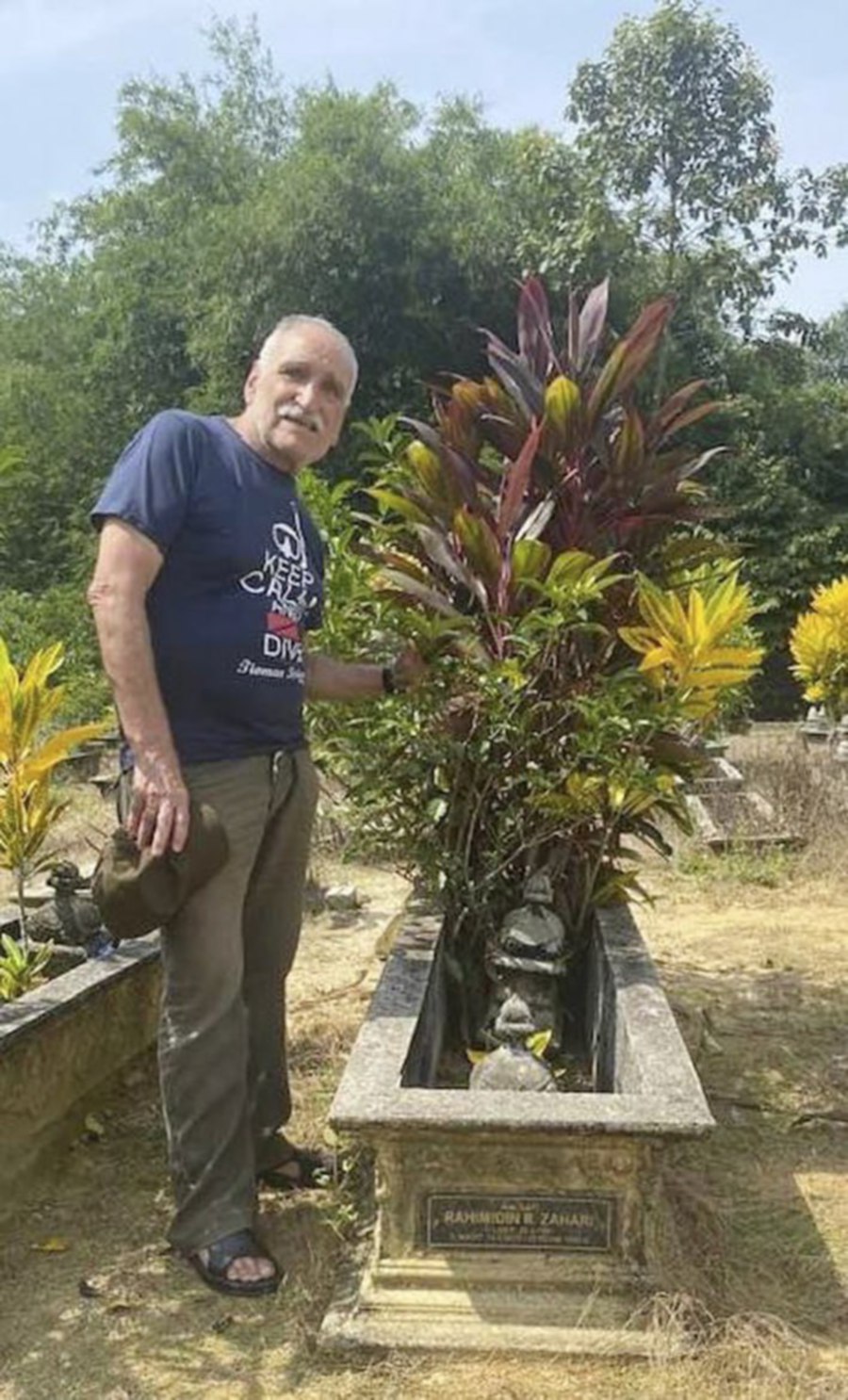
Recently, while in Kelantan, I visited his grave at the Islamic cemetery Bechah Mulong in Peringat, accompanied by the Kelantan writer, Abdul Hadi Yusof.
The cemetery is small, but we were able to find my friend's grave. I thought the Kelantan Writers' Organisation could pay more attention to his grave, at least in making it easier to find.
To me, Rahimidin Zahari is the pride of not only Kelantan, but the whole of Malaysia.
* The writer, writing from Russia, is a former lecturer at Universiti Malaya


